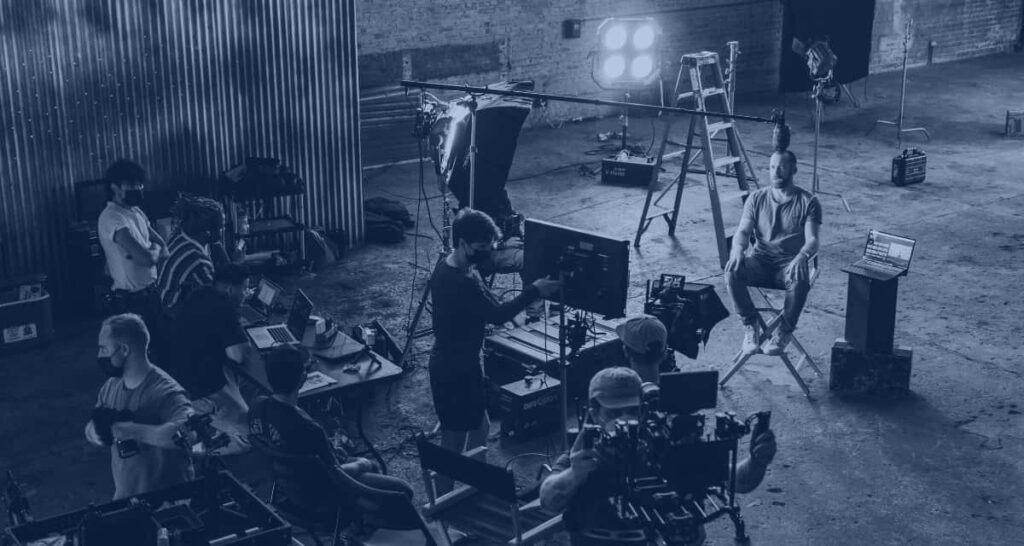
If you’re the production accountant on a film or show, or if you’ve been tasked with the production accounting in addition to 20 other jobs, you want only good surprises. Instead of sending you and your producer (who might also be you) into panic mode as production nears wrap, put these simple practices in place for a smoother ride throughout the shoot and post.
1. Get your POs into Production Accounting early and often.
Purchase orders may seem like a hassle to department heads, but they are an essential part of keeping good production accounting books, avoiding devastating overages and missed opportunities. Almost by definition, a PO should not be created after an invoice has already been received.
While department heads may whine and make pouty faces about having to submit POs for every invoice-worthy expense, a little effort on their part can go a long way toward keeping your film project organized and on budget.
Production accountants should be proactive in this regard. If you are not seeing any POs from a certain department, go to the department head and find out why (we stop short of saying “bug them,” but we encourage creativity in your methods of obtaining cooperation). Submitting all the POs at the end of production creates a nightmare for you, i.e., the production accountant who needs to reconcile the money spent against the amount originally budgeted.
This cuts both ways. If expenses turn out to be significantly below what was budgeted (since you properly padded the budget, right?), there may be an opportunity for the production accounting team to move that money around to other departments that have had to skimp. Entire shot setups, once deemed unshootable due to budget limitations, can be resurrected based on savings found in various departments. Without POs, you won’t know what those savings might be.
Even more of a crushing blow is caused by missing POs that turn out to be higher than the amounts anticipated. If you’ve ever been in the production office at the end of a show and seen a slew of unexpected invoices come in, you know the kind of mayhem and agony this can cause.
2. Bank recs can save a production accountant from bank wrecks.
We’d all love to live in a world where banks don’t make mistakes. We’d also love to live in a world where magical, wish-granting unicorns fly over rainbows made of delicious taffy. But in the real world, banks do make mistakes. All the time, in fact.
Even if your own bank is flawless, your film vendor’s bank or check cashing center might (accidentally) cash their check for a higher amount than you intended to write it for. This little mistake could cause you a big headache, as your account could be overdrawn. Worst of all, you would never know where the mistake took place.
Unless, that is, your production accounting staff performs bank reconciliations on a regular basis. Doing bank recs is a simple but essential preventive step you can take to make sure your cash balance on your trial balance is always correct for your film or TV project. Without bank recs, you’ll just never know.
3. Make your Cost Reports regular to avoid getting backed up.
On a big show, cost reports are unavoidable for the production accounting team. There’s usually even a weekly cost report meeting just to talk about it – the words “cost report” are right in the name of the meeting, so you know it’s important! On smaller productions, sometimes this report can fall by the wayside. Don’t let it.
The value of weekly or biweekly cost reports cannot be overstated. As the production accountant or producer, you can’t afford not to know where the money is actually going and where the variances are from your original production budget. Related to the PO issue we beat to death above, a regular cost report can give you a snapshot picture of which departments are spending less than expected and which are spending more.
It’s crucial to take this information in regularly, not only to know if you’re on budget overall, but also to see if you want to shift some of your budgeted dollars to other areas of the project. Many production accountants like to go from the cost report right into the bible for the show, to get a more detailed look at which accounts are being hit the hardest.
In our own production accounting platform MediaWeb, we’ve taken the cost report and merged it with the bible to get what we like to call the cost bible report, which combines the best of both. So you can get the Estimate To Complete and Estimated Final Cost columns right alongside the details of where the money was spent. Super fun, you guys.
4. Get a kickass payroll accountant.
Why would we swear in this otherwise staid article about production accounting? Because it’s just that important. You need a great payroll accountant. If your production is too small to have a dedicated payroll accountant, make sure your general production accountant knows payroll. Really, really well.
If payroll on the production side is not in the hands of a master, your whole show can be in for a very rocky ride. There are a few reasons for this, which may not be apparent at the offset, but will become painfully real during an audit. For example, a knowledgeable payroll accountant understands:
- Minimum wage and hour laws for production states
- Strict time frames in which employees must be paid
- Union compliance and contribution rules
- The importance of indicating the correct work locations on timecards
These factors are important not just intrinsically, but because of the future ramifications of getting them wrong in your production accounting. For example, when you run that cost report you’re now generating regularly (right?), if employees are being inadvertently underpaid, you might mistakenly think you just found a windfall of funds in your payroll budget, and spend that money elsewhere. But when crew members come back later – sometimes even after production has wrapped – and claim you have shorted their pay/contributions/fringes, you’ll now be liable for back pay plus penalties… possibly on the entire crew. This is a huge unanticipated cost for the show, so it’s essential to get it right the first time.
5. Account for incentives.
It goes without saying that you need to research various production locales if you’re thinking about going for incentives. No two incentive programs are alike, and the production accountant will consider many factors when deciding which works best for your production: refundable, transferable, grant, resident/nonresident, qualified spend, travel costs, etc.
But once you’ve made that decision, bought your plane tickets to Timbuktu and contacted the film office to find out the best rib joint in town, you’ve still got a long way to go before you actually get the credit/rebate/free snow globe back. And the amount you get back in the end can vary greatly depending on how well the production accountant understand the incentive in the particular region, and more importantly, understand their accounting requirements.
A lot of productions leave money on the table by not knowing exactly how and which expenses to track, as well as how to report out those expenses in a format the state will accept. Make sure you work with a production accountant who understands the requirements for top incentive states, and verify that your accounting system has the reporting capacity to adequately document your qualifying expenditures.
Have more questions about production accounting? Visit our production accounting section to learn more and to read about MediaWeb, our best-in-class production accounting software.
